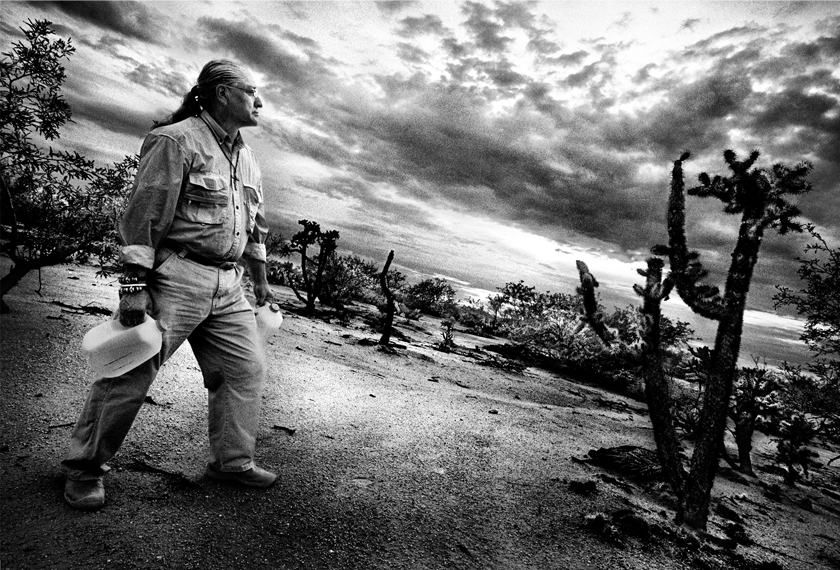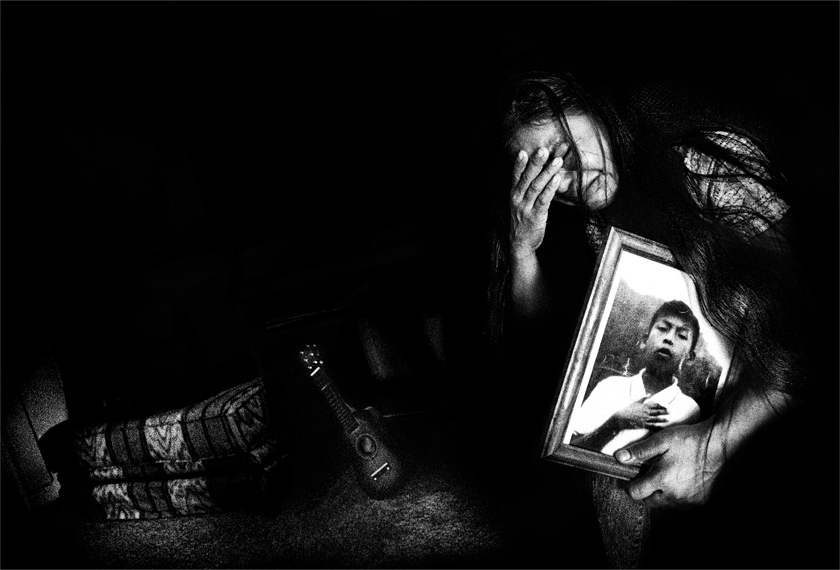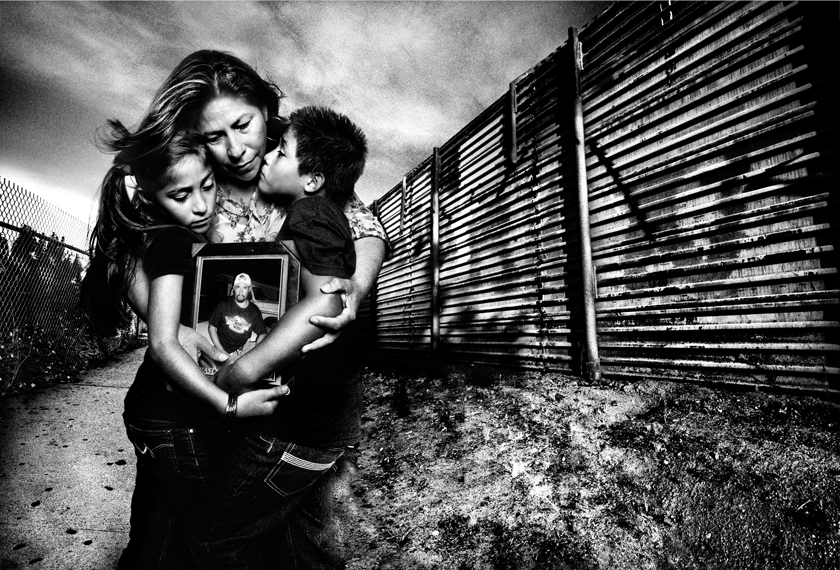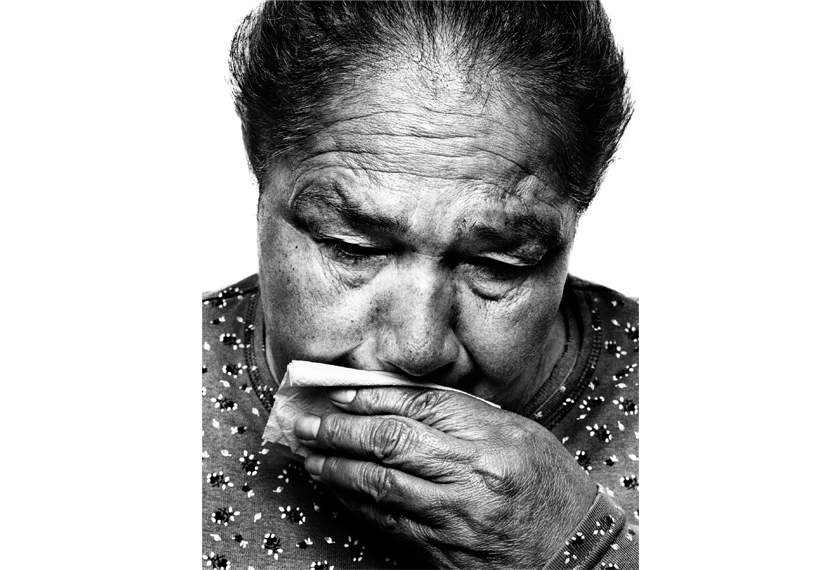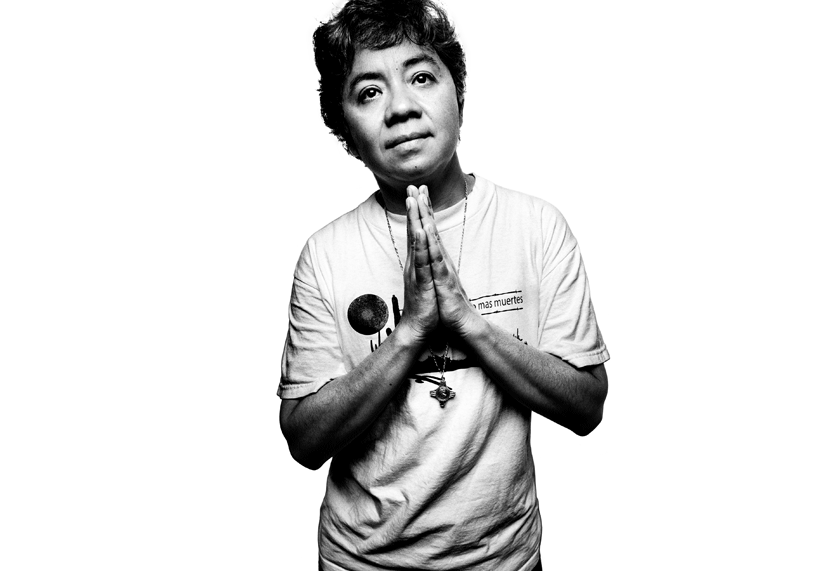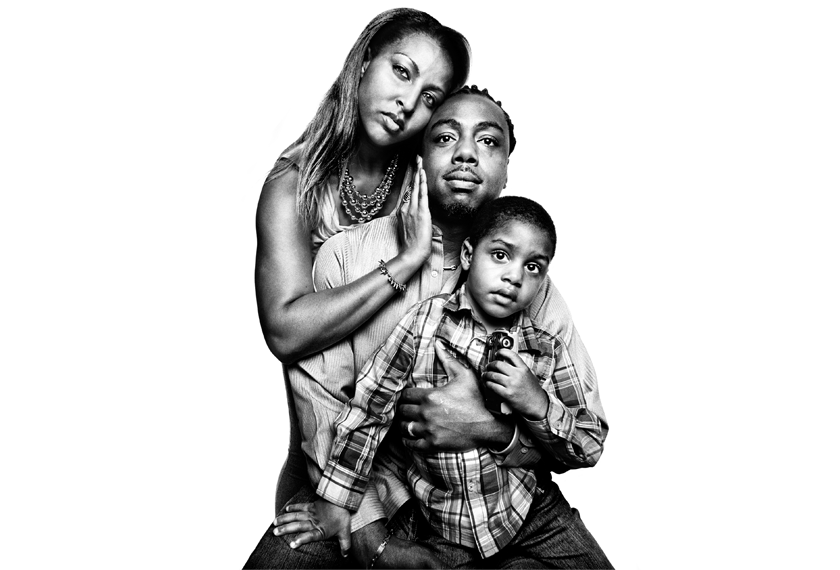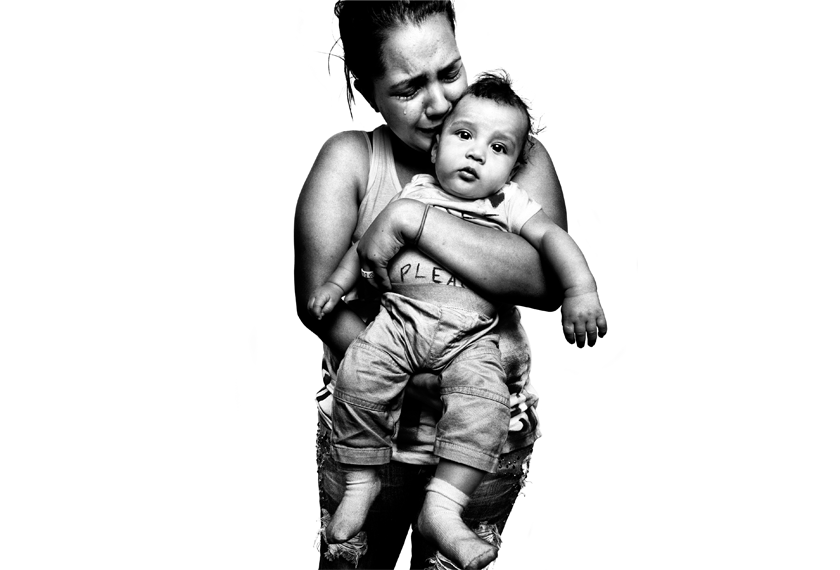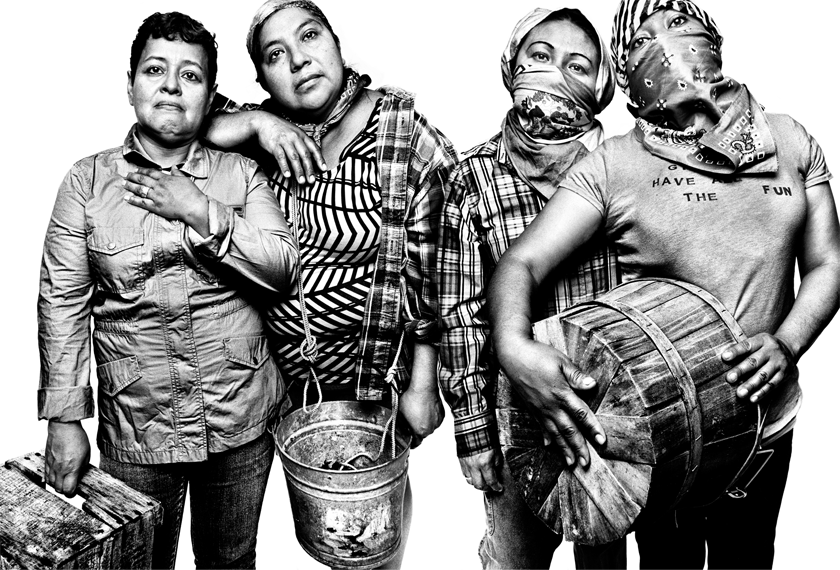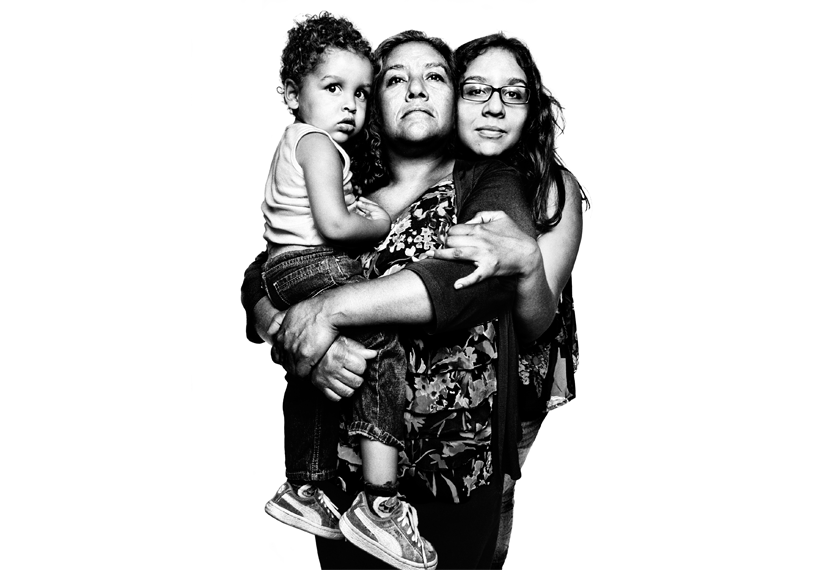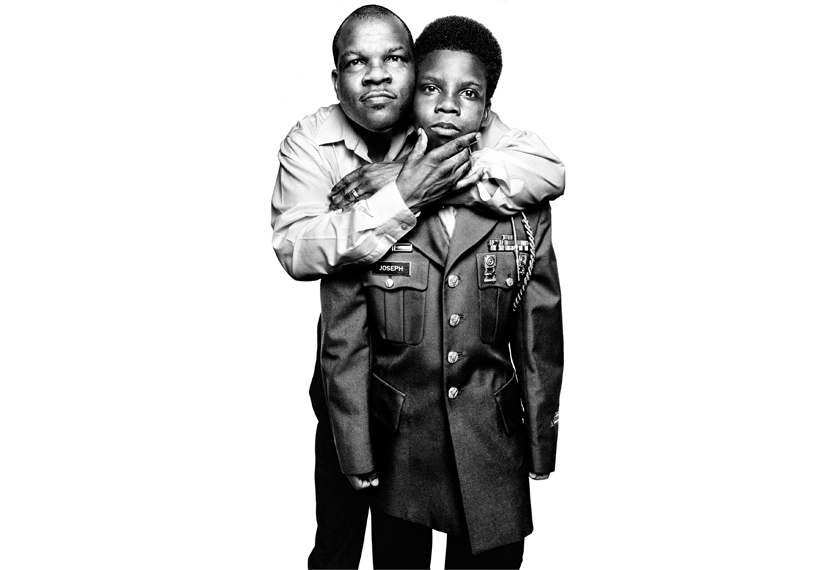-
Torn Apart
families and us immigration reform
photographs by platon for human rights watch
Read on

President Barack Obama’s decision to suspend the deportation of millions of unauthorized migrants will help protect families from arbitrary separation and some workers from abuse. But it leaves many abusive policies in place and it is not a permanent solution.
The US Congress and the executive branch can do much more. A permanent solution should be found for the more than 4 million people covered under Obama’s plan, and more humane border policies should be put in place to address the tens of thousands of children and adults who this year will journey to the United States, many seeking asylum from persecution in their home countries.
Reforms are also needed to end abuses against immigrants who are already living inside the US —the 7 million unauthorized immigrants not covered by Obama’s plan who remain highly vulnerable to abuse, including the hundreds of thousands of immigrants in the US facing harsh detention and deportation policies. Many of these immigrants are spouses, parents, and children of US citizens and of lawful permanent residents. This means that when their rights are violated—when they are exploited at work, detained for months or years in harsh conditions, or abruptly deported—American families and communities suffer too.
In June 2013, the US Senate passed a sweeping immigration bill that would create a path to citizenship for millions of unauthorized immigrants. The legislation was far from perfect, but it did contain important measures that would reduce some of the risks that many unauthorized immigrants face, allow many families to stay together, and minimize the number of people whose desperation leads them to try to enter the US illegally.
Congress and the executive branch can each adopt reforms that respect families, protect immigrants from workplace abuse and crime, safeguard due process rights, focus enforcement on genuine threats to public safety, and include a broad path to permanent legal status.
Without comprehensive and longer-term immigration reform, millions of immigrants—like those whose stories follow below—will continue to live in fear and endure serious abuses. Though some now have a temporary reprieve, their lives, and those of their families, remain at stake.
Update: January 2015
While the videos in this feature were produced in the summer of 2014, the text has been updated to reflect the most current status of the individuals' cases.

Mike Wilson, a volunteer with the Tucson, Arizona-based Humane Borders, places containers of water in the desert in the hope of preventing more migrant deaths and leads search missions for families looking for loved ones. Wilson is a member of the Tohono O'odham Nation, on whose reservation many of the migrants have died. Members of his tribe and the congregation he used to serve as a pastor, he said, have criticized him for trying to save lives of people who are breaking federal immigration laws. "As your pastor, I have to choose between two sets of law," he tells them. "Which law is above the other? Federal immigration laws or God's moral, universal law that you take care of the stranger?"

Fermina Lopez Cash, a 47-year-old woman from Guatemala, sits in her home with a photo of her 13-year-old son, Omar, who died in July 2010 in the Arizona desert trying to cross the US-Mexico border to join her and his older siblings in Phoenix. Only 9 years old when she left, Lopez Cash said Omar begged to come to the US as well. A middle-aged woman offered to come with him, and they hired a "coyote" (smuggler) to take them across the border.
Almost three years later, the remains of a teenage boy that had been found in the Arizona desert along with those of an older woman, were confirmed as those of Fermina's son.

Robin Reineke, director of the Colibrí Center for Human Rights, holds the personal effects of unidentified border crossers. Such personal effects are kept at the Pima County Office of the Medical Examiner in Tucson, Arizona, to match families with missing migrants who were last seen alive crossing the border. According to Reineke, from 1990 to 1999, an average of 12 remains of border crossers were brought into the Pima County Medical Examiner's office per year. From 2001 through the present, the average number of remains is 164.
"There's been this discourse that security is the automatic obvious need on the border ... more walls, more border patrol, more surveillance, more unmanned aerial drones," she said. "That's the type of strategy that we saw change our landscape into one of death, and it's heartbreaking to see the same type of conversation happening now." Obama announced in a November 2014 speech that he would seek “additional resources” for law enforcement on the US border with Mexico.

In 2010, border guards beat and shocked Anastasio Hernandez Rojas with a stun gun at the San Ysidro port of entry near San Diego, California. He died three days later. An autopsy report ruled his death a homicide, with hypertension and methamphetamines as contributing factors. Rojas had been deported a few months earlier and was apprehended when he tried to rejoin his family, including his wife, Maria Puga, and their 7-year-old twins, Daniela and Daniel, pictured here near the wall where their father was beaten. Puga, who has successfully demanded a governmental investigation into her husband's death, says, "I want my kids to grow up peacefully, not with bitterness. That is why I continue to search for justice."
From 2006 to 2012, the annual budget of US Customs and Border Protection (CBP) nearly doubled from $6 billion to more than $11.7 billion, causing a rapid increase in staff but little additional investment in oversight and accountability mechanisms. Politico magazine reported in November 2014 that between 2005 and 2012, nearly one CBP officer was arrested for misconduct every day. While announcing executive action on immigration, Obama called for Congress to fund 20,000 new CBP agents with no mention of reducing misconduct.

Angie and Peter Kim came to the United States from South Korea with their parents when they were 9 and 7 years old respectively. According to them, their grandmother, a US citizen, had petitioned for their family, they said, but after years of waiting due to a backlog of visas, she died just before they could complete the process. When their father became a permanent resident through marriage to a US citizen, he and Peter became permanent residents. Peter is now a US citizen, but Angie was over 21 years old at the time and could not gain legal status. Without congressional action on immigration, she may never become a US citizen like her brother. Angie knows that in some ways she is lucky because she has qualified for temporary relief from deportation under one of President Obama’s reforms. "I'm able to sit next to my brother right now but I know...children, or parents who are literally separated from each other."

Marta Garcia left Mexico for the United States more than 20 years ago, settling in California with her husband and her three children, all US citizens. Marta said her application to gain legal status through her husband was pending, and she thought she could reenter the US legally after leaving to take care of her dying mother in Mexico. But she was arrested by immigration authorities and ultimately deported. Under current law, Marta has little hope of legally rejoining her family in the US. Sitting in a migrant shelter in Tijuana, Mexico in August 2013, she said, "I want to be with my children and watch them succeed."
Obama’s immigration actions do not reach family members who have already been deported. Across the two years of 2011 and 2012, Human Rights Watch estimates a total of 101,900 parents of US citizen children were deported. Though many of these parents might have qualified for deferred deportation were they still in the US, Obama’s plan does not provide relief to them if they are caught trying to re-enter the country to rejoin their families.

Alma D. Isais Aguilar, a Catholic nun, works with the Kino Border Initiative, a group that provides food and shelter to migrants in the border town of Nogales, Mexico. Sister Alma reports that until recently, the migrants she encountered were typically heading north for the first time, but that increasingly they are long-term US residents, newly deported and desperate to return to families north of the border.

Roland Sylvain, 35, and his US citizen wife, Joeddy, 30, pictured with their older son, also a US citizen. Roland was born in Haiti and has been a lawful permanent resident since the age of 7. Joeddy was born and raised in Brooklyn, New York. Roland's parents, siblings, and his 94-year-old grandfather are US citizens. Roland explained he faces deportation for signing his cousin's name on traffic tickets more than 10 years ago, which resulted in a forgery conviction. Although he never served any time in prison, his sole conviction is considered an "aggravated felony" under US immigration law, for which Roland faces mandatory and permanent deportation to Haiti and separation from his family.
In announcing his new immigration measures, President Obama promised to continue deporting “felons, not families.” The Department of Homeland Security will still give priority to the deportation of people like Roland, with aggravated felony convictions, and such a conviction makes them ineligible for temporary legal status.

Kathleen Velazquez's partner, Antonio Herrera, was arrested in 2012 for working with false documents. She said those charges were ultimately dropped, but he was placed in immigration detention and missed the birth of his son, Aaron, in February 2013. According to Kathleen, Antonio was the main breadwinner for her and their children, his mother, sister, and disabled older brother.
Congress should repeal the immigration detention “bed mandate” requiring that immigration detention facilities, most of which are privately run, maintain more than 34,000 beds on any given day, at an annual cost of $1.7 billion.

Evie Liu, who was trafficked into the United States when she was 18 years old, yearns for her family in China, which she has not seen in almost five years. "Snakeheads," the Chinese term for smugglers, promised Evie she could easily go to America, make money, and help her parents who were in debt. Instead, she reported she endured a circuitous and arduous journey and was told she owed the smugglers $98,000. With the help of a nonprofit attorney, Evie was able to apply for, and receive, a "T" visa as a trafficking victim. She continues to work in Chinese restaurants to pay off her debt.
Obama’s immigration action includes policy changes making it easier for victims of trafficking like Evie to file a complaint and apply for “T” visas. Congress should increase the number of visas for victims of serious workplace violations, as proposed by the 2013 Senate comprehensive immigration reform bill.

Alina Diaz, a farmworker advocate, with Lidia Franco, Gisela Castillo and Marilu Nava-Cervantes, members of the Alianza Nacional de Campesinas, a national organization that mobilizes farmworker women around the country to engage with policymakers about workplace abuses, including unpaid wages, pesticide exposure, and sexual harassment. Once an undocumented immigrant herself, Diaz is now a US citizen. For her, the farmworkers in her community are "already great citizens" in all but name. She dreams that one day they will go to Washington, not to "demand and scream and march," but to commemorate victory, to say, "Thank you, because you are giving me dignity, because you are treating me as a human being."
Obama’s immigration actions will grant hundreds of thousands of farmworkers with US citizen or legal permanent resident children temporary reprieve from deportation, but it will not protect many longtime farmworkers who fail to meet eligibility requirements.

Melida Ruiz, a 52-year-old grandmother, photographed with her 19-year-old daughter, Mercedez, and her one-year-old grandson, Christopher. Melida, a lawful permanent resident, has lived in the United States since 1981. Melida was held in immigration detention for seven months in 2011 fighting deportation based on a 2002 misdemeanor drug conviction, her sole conviction in more than 30 years of residence in the United States. In granting her application for cancellation of removal, and allowing her to remain in the United States, an immigration judge found that her one conviction was "out of character." The months of detention away from her family were difficult. She considered giving up and agreeing to be deported voluntarily. "The only thing keeping me strong was my kids," she said.
Congressional action is still needed to address draconian “mandatory detention” provisions in immigration law that required Melida’s detention despite her eligibility for relief.

Hilarion Warren Joseph, 46, a decorated veteran of the first Gulf War and a longtime lawful permanent resident, with his 13-year-old son, Japeri, who wears the jacket from Joseph's US Army uniform. After the war, Joseph said he suffered from post-traumatic stress disorder and attempted suicide three times. He was eventually convicted of transporting guns without a license, which ultimately led the US government to seek to deport him for an "aggravated felony." After three years of immigration detention and litigation, Joseph was able to fight deportation, and now lives with his son Japeri in Brooklyn, New York. But he knows many veterans are not so fortunate and end up exiled from the country they served.


Acknowledgments
Platon and Human Rights Watch thank the many immigrants and their families who generously and courageously shared their experiences with us for this project. We also thank Alina Diaz, David Maung, Samuel Murillo, the ACLU Immigrant Rights Project, American Friends Service Committee – US/Mexico Border Program, Alianza Nacional de Campesinas, Atlas: DIY, the Arizona DREAM Act Coalition, Casa del Migrante, Coalicion Pro-Defensa del Migrante, the Colibrí Center for Human Rights, Instituto Madre Assunta, Farmworker Justice, the Kino Border Initiative, the Immigrant Defense Project, Immigration Equality, the Law Offices of Claudia Slovinsky, the Pima County Office of the Medical Examiner, and Puente Arizona.
Project Directors: Grace Meng, Minky Worden
Photography: Platon/The People's Portfolio for Human Rights Watch
Cinematography: Francisco Fagan
Additional Cinematography: Mariam Dwedar
Video, photography and interactive feature produced by
Human Rights Watch's Documentary Video Team:
Director: Veronica Matushaj
Video Producers: Mariam Dwedar, Elena Testi
Design Manager: Ivy Shen
Editors: Francisco Fagan, Jamie Boyle, Joe Singer, Mariam Dwedar
Production assistance: Samantha Reiser
Design: Fruitmachine







